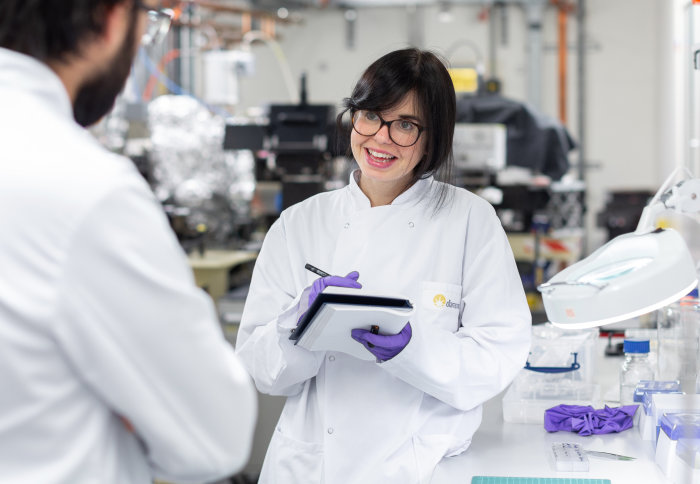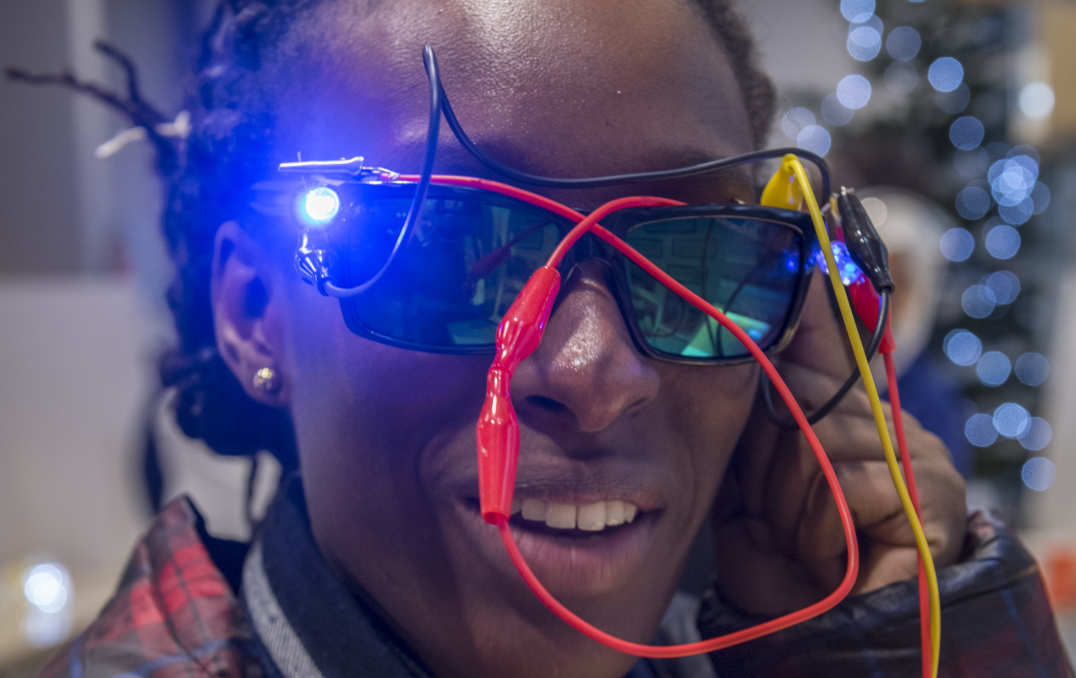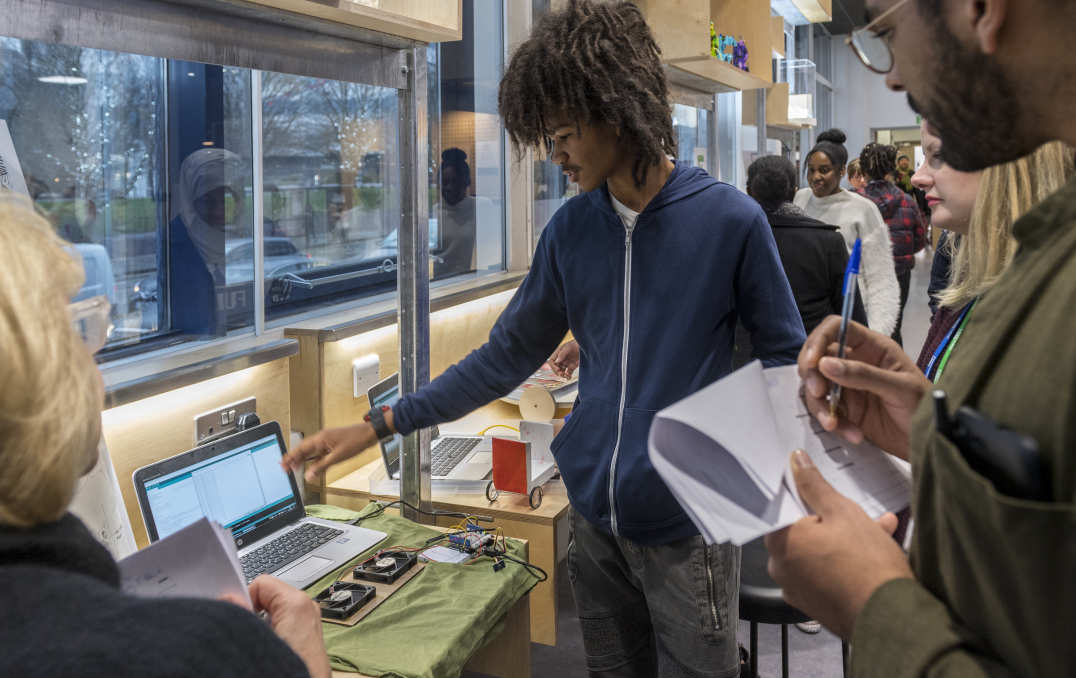Diversity champ, and producing plastic: News from the College

Dr Jess Wade
Here’s a batch of fresh news and announcements from across Imperial.
From well-deserved recognition of an Imperial diversity champion, to an investigation into the way we use plastics, here is some quick-read news from across the College.
Diversity champion
Imperial physicist and diversity champion, Dr Jess Wade, has been named as one of ‘ten people who mattered this year’ by science journal Nature.
She is listed alongside top scientists for her efforts to raise the profile of underrepresented groups in science. Her work came to public notice earlier this year when the media picked up on the hundreds of Wikipedia pages on female scientists she has written, outside of her day job in Imperial’s Department of Physics.
Most recently, a crowdfunding campaign which she spearheaded raised enough for a copy of Angela Saini’s ‘Inferior’ – a book that debunks accepted scientific ‘facts’ about women – to be made available in every state school in the UK.
Read Jess’s entry in Nature 10.
Image credits: Top (Thomas Angus, Imperial College London)
Health index
 Dr Jonathan Pearson-Stuttard, from Imperial’s School of Public Health, has today co-authored a commentary in the Lancet, together with Chief Medical Officer Professor Dame Sally Davies, calling for a new national Health Index to be tracked alongside GDP.
Dr Jonathan Pearson-Stuttard, from Imperial’s School of Public Health, has today co-authored a commentary in the Lancet, together with Chief Medical Officer Professor Dame Sally Davies, calling for a new national Health Index to be tracked alongside GDP.
The Health Index should take into account health inequality in the population (Imperial published research last month highlighted the gap in life expectancy between rich and poor in England in increasing), along with obesity, smoking, and unhealthy diet.
The commentary is to accompany the Chief Medical Officer’s annual report, also published today – for which Dr Pearson-Stuttard was Editor-in-Chief. The report makes a number of recommendations, including taxing foods high in sugar and salt, and incentives to get people eating more fruit and vegetables.
Prize for The Profs

The winners of the Department for Education’s Higher Education Open Data Competition have been announced, with an Imperial alum’s tool among the successful entrants. Leo Evans, co-founder of The Profs, studied Physics at Imperial as an undergraduate before going on to further study and lecturing at Imperial College Business School.
His company is developing a game format for players to understand how the choices they make could impact on their graduate career path. Last month whilst on campus for the finalist showcase, Leo said that returning to Imperial felt like coming back home.
Announcing the winners, new Universities and Science Minister Chris Skidmore said the successful digital tools “will allow hundreds and thousands of students to be able to make better career choices by having data available to them through innovative new technologies”.
Local school students get inventive
From digitized dog collars to robots that can carry your groceries – young people showcased their creative and entrepreneurial talents at the latest Maker Challenge final.
Based at the Dangoor Reach Out Makerspace in The Invention Rooms at Imperial's White City Campus, the Maker Challenge gives local young people the opportunity to create their own prototype products and gadgets.
This year’s winner was Zebedee Nash, who created a t-shirt incorporating fans to keep the wearer cool in hot weather or during exercise.
Joint second place went to Florrie Mantio and Abigail Aladesuru. Florrie created a tactile portable charger that could be used like a fidget spinner to keep the user occupied as their phone charges, and Abigail designed light-up glasses that could both help people read in the dark.
Third place went to Zainab Alshaber, who designed a robot that could follow the user and carry their heavy bags home.
Heart trouble

Patients with a stable, lifelong heart condition who stop their medication because of a lack of perceived benefit increase their risk of relapse.
In a paper published recently in The Lancet, a team from Imperial’s National Heart and Lung Institute looked at patients with dilated cardiomyopathy, a condition where the heart becomes enlarged and is unable to pump blood effectively.
They found that patients who had recovered and were taken off of treatment saw a spike in symptoms, with 40% of patients relapsing.
The team, led by Dr Sanjay Prasad, advise that complete withdrawal of treatment should be avoided and patients should be carefully monitored.
Read the full paper online.
Producing plastic
 The Engineering and Physical Sciences Council (EPSRC) has awarded £1 million to an Imperial team to investigate the way we use plastics. Professor Jason Hallett from Imperial’s Department of Chemical Engineering will lead the project that focuses on integrating technology, design and policy for a greener plastic future.
The Engineering and Physical Sciences Council (EPSRC) has awarded £1 million to an Imperial team to investigate the way we use plastics. Professor Jason Hallett from Imperial’s Department of Chemical Engineering will lead the project that focuses on integrating technology, design and policy for a greener plastic future.
The project team will focus on changing the materials used in plastics today, increasing the number of times they can be used, and minimising the amount of plastic material that ends up polluting the environment.
Professor Hallett said: “We’re all so excited to get started on this. It’s a great opportunity to tackle one of the biggest challenges facing the planet right now. We have to re-think how we interact with the materials we use, including where they come from and where they go when we are finished with them. In this project, we’ll get to re-examine some of the fundamental truths about plastic production, use and disposal and how we can move to a more sustainable future.”
–
Want to be kept up to date on news at Imperial?
Sign up for our free quick-read daily e-newsletter, Imperial Today.

Article text (excluding photos or graphics) © Imperial College London.
Photos and graphics subject to third party copyright used with permission or © Imperial College London.
Reporter
Tom Rutland
Communications and Public Affairs
Caroline Brogan
Communications Division
Ryan O'Hare
Communications Division
Deborah Evanson
Communications Division
Andrew Youngson
Communications Division
Kate Wighton
Communications Division


